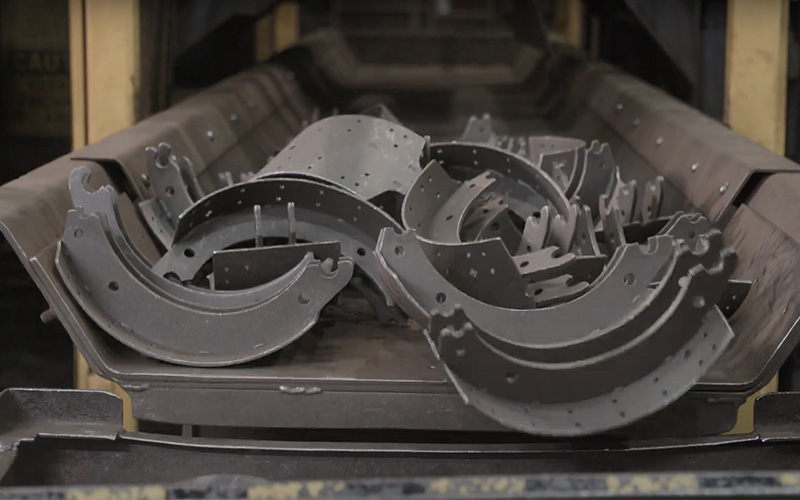The Brake Remanufacturing Process Explained
When it comes to maintaining the performance and safety of heavy-duty trucks, ensuring the reliability of brake systems is top priority. At Parts for Trucks, our brake remanufacturing process is designed to restore used brake shoes to their optimal condition, adhering to the highest industry standards. Here’s an in-depth look at our brake remanufacturing process, which combines rigorous inspection, precise engineering, and quality materials.
Initial Inspection
The remanufacturing process begins with a thorough initial inspection by our trained assembly technicians. Each brake shoe core undergoes an examination to identify any signs of excessive wear or damage. Cores are rejected if they show any of the following issues:
- Corroded tables
- Deformed web
- Elongated anchor pin holes or slots
- Elongated rivet holes
- Broken welds
- Bent tables or flattened roller slots
This stringent inspection ensures that only safe cores proceed to the next stages, maintaining the integrity of the remanufactured brake shoes.
Washing
The cores that pass the initial inspection are then put through a comprehensive washing process. This begins with a preliminary cleaning to remove excessive oil and debris. Following this, a belt conveyor transports the shoes through an aqueous solution that effectively removes any remaining grease and residue. This thorough cleaning is crucial for preparing the cores for the subsequent stages of remanufacturing.
De-Lining
In the de-lining stage, our unique high-volume process is employed to completely remove the old linings from the brake shoes. This step is essential to ensure that the new linings can be properly affixed, providing a high performance and longevity of shoes.
Coining
Next, the brake shoe cores undergo a coining process in one of our three precision presses. Coining straightens each shoe arc and repairs minor bends in the tables, restoring the original shape and specifications of the brake shoes. Our coining press tooling and dies are manufactured to the same OEM specifications used for new production brake shoes, ensuring consistency and reliability. After coining, the shoes are inspected for stretch and wear before being painted.
Painting
Our painting process uses a black gloss paint that is both environmentally friendly (HAPS-free) and tested for high-impact resistance. The rust-inhibitive properties of the paint protect the steel from environmental exposure, enhancing the durability of the brake shoes.
Riveting and Re-Lining
We take pride in using only top-quality friction materials for the re-lining process. These materials help reduce fleet operating expenses while meeting and exceeding several key standards, including:
- FMVSS-121 certification
- Vehicle manufacturers’ engineering specifications
- Stringent internal quality standards
The new linings are engineered and tested to optimize performance, ensuring that our remanufactured brake shoes deliver reliable stopping power and longevity.
Quality Inspection
Before shipping, every Fleetsaver Remanufactured Brake Shoe undergoes a final quality inspection. This includes verifying the correct rivet torque, inspecting the gap between the lining and shoe, and ensuring the proper installation of the lining. This rigorous final check guarantees that only the highest quality brake shoes leave our facility.
Conclusion
This comprehensive brake remanufacturing process ensures that each brake shoe meets quality and performance standards. By combining expert inspection, precise engineering, and superior materials, we deliver remanufactured brake shoes that provide reliable, long-lasting performance for heavy-duty trucks. This commitment to quality and reliability helps keep fleets operating safely and efficiently on the road.

